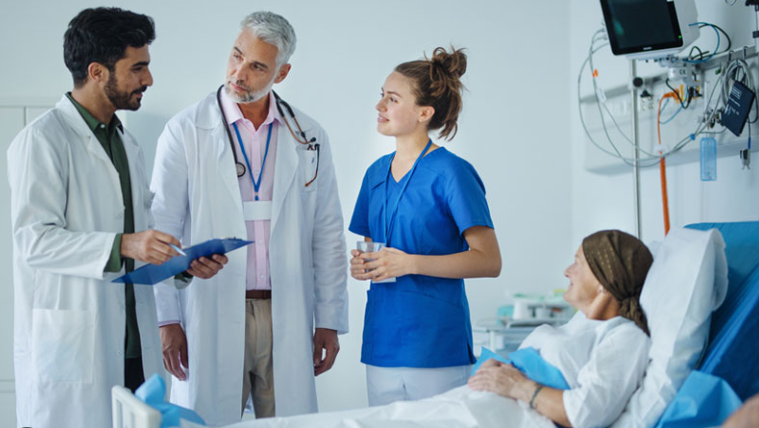Nutrition plays a crucial role in helping the body tolerate chemotherapy and recover effectively. Chemotherapy often affects appetite, taste, and digestion, which can lead to unintentional weight loss and fatigue. A balanced diet provides the energy and nutrients required to support immune function and repair damaged tissues. Proper nutrition can also reduce the severity of side effects such as nausea and mouth sores. The goal during treatment is to maintain strength, preserve muscle mass, and stabilize weight to ensure the body is resilient enough to handle ongoing therapy.
Common Nutritional Challenges Faced By Cancer Patients
Chemotherapy can alter how patients experience food. Taste changes, dry mouth, loss of appetite, and nausea are among the most common challenges. Some patients may develop an aversion to protein-rich foods or experience sensitivity to smells. Managing these side effects requires individualized dietary adjustments. For instance:
- Eating cold foods can minimize smell sensitivity.
- Incorporating smoothies and soups can help with swallowing difficulties.
- Using herbs and mild spices enhances flavor when taste buds are dull.
Addressing these early helps patients maintain adequate caloric and protein intake during treatment.
Essential Nutrients That Support Recovery
Certain nutrients play a key role in healing and maintaining strength during chemotherapy.
- Proteins: Support tissue repair and immune function.
- Complex carbohydrates: Provide sustained energy.
- Healthy fats: Aid in nutrient absorption and help manage inflammation.
- Vitamins and minerals: Especially vitamin D, B12, and zinc, are vital for maintaining energy levels and immunity.
Best Foods To Eat During Chemotherapy
The right food choices can make a significant difference in energy levels and overall well-being. Nutrient-high and easy-to-digest foods are preferred, such as:
- Cooked vegetables and fresh fruits for vitamins and fiber.
- Lean meats, lentils, and eggs for protein.
- Whole grains like oats, rice, and quinoa for steady energy.
- Yogurt and fermented foods to restore gut health after antibiotic use.
Small, frequent meals with these foods can help manage fatigue and ensure adequate nutrition throughout the treatment process.
Foods To Avoid For Better Tolerance And Healing
Certain foods may worsen chemotherapy side effects or interfere with treatment. Patients are advised to limit:
- Greasy, fried, or spicy foods that can increase nausea.
- Raw or undercooked meats and eggs to prevent infection.
- Excessive caffeine and alcohol, which can dehydrate the body.
- Highly processed foods with preservatives or artificial additives.
Avoiding these can prevent digestive issues and allows the digestive system to function more smoothly during therapy.
Hydration And Its Role In Managing Side Effects
Staying hydrated is essential during chemotherapy since dehydration can worsen fatigue, constipation, and nausea. Water, herbal teas, and diluted fruit juices are good options. Electrolyte solutions may also help maintain balance, especially during episodes of vomiting or diarrhea. Patients should avoid sugary or carbonated beverages that can irritate the stomach. Consistent fluid intake supports kidney function, helping the body flush out chemotherapy toxins efficiently while maintaining optimal circulation and digestion.
How Small, Frequent Meals Can Improve Energy Levels
Instead of three large meals, patients may benefit from having five to six smaller meals throughout the day. This approach prevents nausea, keeps blood sugar stable, and helps with better nutrient absorption. Smaller portions also make it easier to manage appetite fluctuations. Snacks like boiled eggs, bananas, or nut butter on toast can provide quick, nutrient-dense energy between meals. This strategy ensures the body has a continuous supply of energy, which is particularly important when recovering from intensive chemotherapy sessions.
The Role Of Supplements And Medical Nutrition Support
In cases where eating becomes difficult, supplements can fill nutritional gaps. Protein shakes, meal replacement drinks, and prescribed vitamins help maintain adequate nutrient intake. However, supplements should always be taken under medical supervision to avoid interactions with chemotherapy drugs. Medical nutrition support through enteral or parenteral feeding may also be required for patients with severe gastrointestinal symptoms. The aim is to maintain energy balance and prevent malnutrition while continuing treatment.
Delhi has become one of India’s top destinations for advanced oncology care, offering specialized centers with experienced oncologists, modern infusion therapies, and integrative support systems. With multidisciplinary teams and quality infrastructure, patients have access to some of the most comprehensive chemotherapy treatment in Delhi, making it a preferred choice for those seeking effective cancer management supported by modern medical technology.
Getting Professional Guidance From Oncology Dietitians
A registered dietitian specializing in oncology can create a nutrition plan for the patient’s type of cancer, treatment stage, and side effects. They help identify food sensitivities, recommend suitable supplements, and monitor nutrient levels over time. Dietitians can also guide families on safe food handling and preparation to avoid infections. Working closely with such professionals ensures patients maintain nutrition and minimize complications throughout chemotherapy and recovery.


